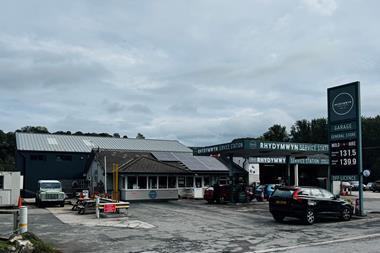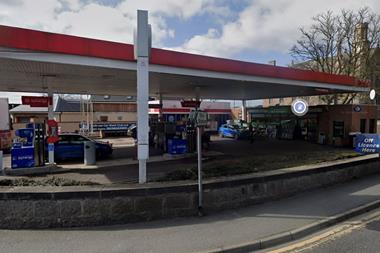COVID-19 has caused serious challenges. As it stands, forecourt owners are seeing an increase in in-store purchases. The key to managing these challenging times is to make sure that you’re prepared for any eventuality. Now is the time to drive in-store sales and manage cash flow tightly, to ensure that you’re prepared should the outlook change quickly. In this guide, I will cover the funding that you will be entitled to at a government level, and the tools available through the commercial finance market.
Government Grants:
To relieve pressure on business owners, the government has announced measures to help SME business owners to manage the crisis.
Small Business Grant Funding:
Small businesses (classed as businesses with a rateable value of £15,000 or less) are eligible for a grant of £10,000, which will be managed through your local authority.
For businesses in the retail, hospitality and leisure industries (petrol stations fall under this), with a rateable value of £15,000-£51,000, a grant of £25,000 will be paid. The scheme is being set up now and further information is expected shortly. You do not need to apply for the grant, if you’re eligible your local authority will be in touch with further details.
Business rates holiday:
A business rates holiday has been announced for the 2020/21 tax year. Again, this is going to be automatically applied by your local authority via a reissued bill.
Your options when looking to borrow money:
On top of the grants available, the commercial finance market is still active and although some lenders have tightened up their lending, others are still strong. A cash injection now can provide a solid base to ensure stock levels remain high and your business well equipped to deal with a rapidly changing outlook.
Unsecured Business Loans:
The unsecured business loan market has evolved a lot in recent years as a lot of new entrants have joined the market. They’re a great source of fast funding, with applications usually taking between 5-7 days to complete.
Loans are available from £3,000-£500,000 over terms of between 6-60 months. The interest rates charged depend on the strength of your trading accounts and your credit history, with the lowest rates going to the lowest risk applicants. To support businesses through COVID-19, the government has announced the Coronavirus Business Interruption Loan Scheme. The scheme is delivered by standard business loan lenders, through the British Business Bank and provides loans to businesses up to £5 million in value.
The government guarantees 80% of these loans, to encourage lenders to support SMEs on higher risk transactions. In addition, businesses will have an interest free period for the first 12 months of the loan government will cover the interest.
Secured business loans:
Secured business loans work in much the same way as unsecured loans, except the lender takes a charge over a property usually either your business premises, your home or an investment property. These loans usually come with a more relaxed criteria as the lender has security to fall back on should you fail to keep up the repayments. In return for offering security, you will usually be rewarded with a lower interest rate and may be able to borrow more money over a longer term up to 25 years. Loan sizes start at £26,000 with no maximum loan size and applications can usually be completed in 10-14 days.
Merchant Cash Advances:
Merchant cash advances allow you to borrow money against your future card receipts and are ideal for those wanting to increase in-store stock to meet the increased demand of shoppers. Advances are available between £2,500 and £300,000 and applications can be completed usually in 2-5 days.
Business Revolving Credit Facilities:
Revolving credit facilities allow you to borrow and repay funds as needed. The most well-known revolving credit facility is the overdraft, although there are several lenders offering standalone facilities for business owners. Funding can be arranged very quickly, usually in 2-3 days.
Some revolving credit facilities will fall under the Coronavirus Business Interruption Loan Scheme and could enjoy a 12-month interest free period.
Commercial mortgages:
If you own your business premises, you could raise funds using a commercial remortgage. Forecourt owners can borrow up to 70% of the value of their property. Commercial mortgages usually offer lower interest rates than the products above and can be taken over terms up to 25 years. Raising money through commercial mortgages can be a great option for borrowing large amounts, while keeping monthly costs to a minimum. Where you already have a mortgage, you may be able to refinance to a lower rate to reduce monthly costs at a time when cash flow is key.




























![VolumaticSurveySupportsCash_image[8159]](https://d1haa5elnw3u00.cloudfront.net/Pictures/380x253/3/8/9/261389_volumaticsurveysupportscash_image8159_640635.jpg)


No comments yet